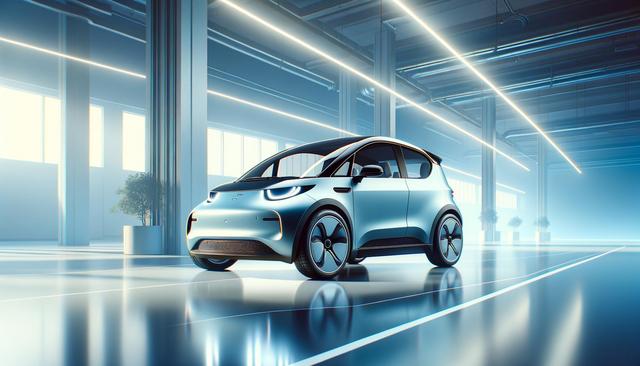What Defines a Small Electric Car?
Small electric cars are compact vehicles powered entirely by electricity, typically designed for short to medium-range driving. These cars usually feature a hatchback or subcompact body style and prioritize efficiency over high performance. Their size makes them ideal for city commuting, where tight parking spaces and traffic congestion are common. Key characteristics that define these vehicles include a smaller battery pack compared to larger electric models, limited seating capacity (usually for two to five passengers), and a lightweight frame that improves energy efficiency.
These cars are often chosen by urban dwellers, students, and environmentally conscious individuals who need a practical way to get around town. They are not only easier to park but also tend to have lower running costs, making them appealing to budget-conscious buyers. While they may not have the same range or spaciousness as larger electric vehicles, their reduced carbon footprint and affordability make them a smart option for many.
Benefits of Choosing a Small Electric Car
There are several advantages to owning a small electric car, especially in urban environments. These benefits go beyond just reducing fuel consumption and include practical and financial perks:
- Lower operating costs: Electricity is generally cheaper than gasoline, and small electric cars often have lower maintenance needs due to fewer moving parts.
- Environmental impact: They produce zero tailpipe emissions, contributing to cleaner air and reduced greenhouse gas emissions.
- Easy maneuverability: Their compact design makes them easier to drive and park in crowded cities.
- Incentives and rebates: Many governments offer tax incentives, reduced registration fees, or access to carpool lanes for electric car owners.
In addition, small electric cars often come equipped with modern tech features such as regenerative braking, digital dashboards, and smartphone integration. These features enhance the driving experience while maintaining a focus on efficiency and sustainability.
Challenges and Considerations
While small electric cars offer several advantages, they also come with a few limitations that potential buyers should consider. One of the most significant challenges is their limited range. Due to smaller battery packs, most small electric cars have a range between 100 and 200 miles on a full charge, which may not be suitable for long-distance travel. Charging infrastructure can also be a concern, especially in areas where public charging stations are scarce.
Other considerations include:
- Passenger and cargo space: These vehicles often have limited room, which may not be ideal for families or those who frequently carry large items.
- Performance: While sufficient for city driving, small electric cars may lack the acceleration and top speed of larger models.
- Price: Despite their size, some models can be relatively expensive due to the cost of battery technology.
Prospective buyers should weigh these factors against their specific needs and driving habits. For city-based drivers with predictable daily commutes, the limitations may have minimal impact, while the benefits remain substantial.
Popular Use Cases and Target Users
Small electric cars are particularly well-suited for specific lifestyles and use cases. Understanding where they shine can help determine if they’re the right choice for you. These cars are commonly used by:
- Urban commuters: Individuals who travel short distances within the city benefit from the low operating costs and easy parking.
- Students and young professionals: With budget-friendly pricing and minimal maintenance, these cars are attractive to younger drivers.
- Retirees: Seniors who no longer need a full-size vehicle appreciate the simplicity and efficiency of small electric models.
- Delivery services: Businesses that operate within urban areas increasingly use small electric cars for deliveries due to cost savings and environmental benefits.
These use cases reflect the growing versatility of small electric cars. As technology advances and more models become available, their appeal continues to grow among a broader range of consumers.
The Future of Small Electric Cars
The market for small electric cars is expected to expand significantly in the coming years. As battery technology evolves, we can anticipate improvements in range, performance, and affordability, which will make these vehicles even more practical for a wider audience. Automakers are actively investing in new designs that cater to urban mobility needs, with a strong focus on sustainability and innovation.
Future developments may include:
- Longer battery life and faster charging: Enhancements in battery chemistry and charging technology will address current limitations.
- Autonomous features: Small electric cars may be among the first to adopt self-driving capabilities due to their use in controlled environments.
- Shared mobility integration: With the rise of car-sharing services, small electric cars are poised to play a key role in reducing vehicle ownership and urban congestion.
As cities become increasingly focused on reducing emissions and promoting sustainable transport, small electric cars are likely to become a cornerstone of modern urban transportation systems.




Leave a Reply